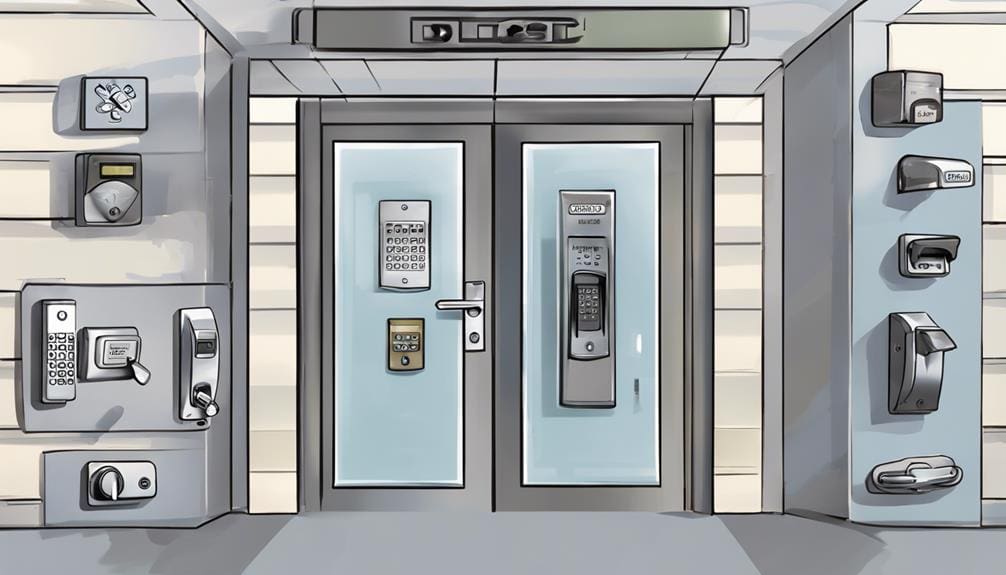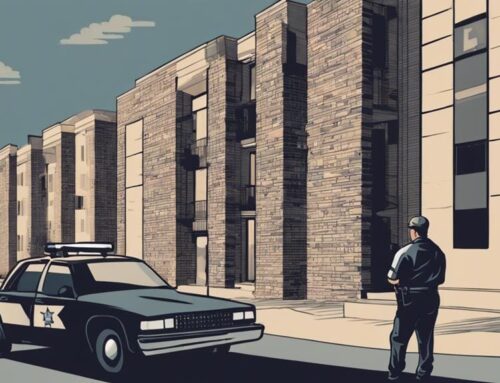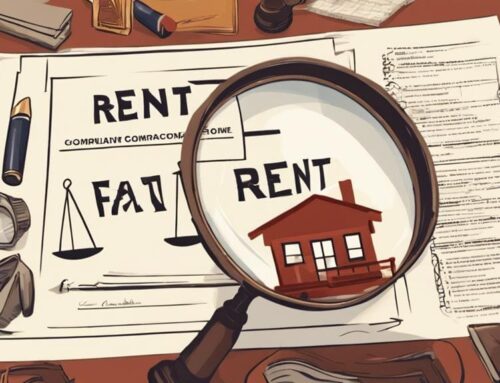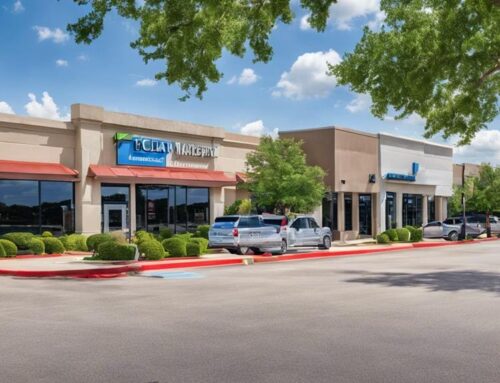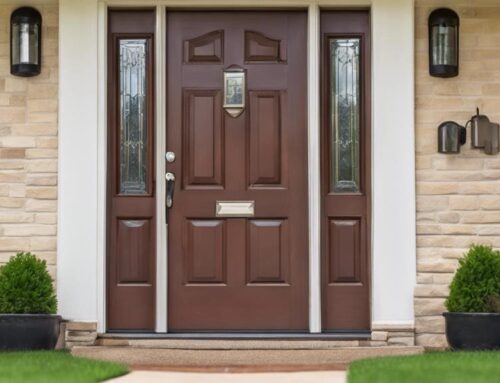You must comply with Texas’s commercial property door lock regulations to guarantee security. Exterior doors require both a keyed and a keyless deadbolt, along with a peephole offering a 160-degree view. Sliding glass doors need a pin lock. Compliance is essential to avoid potential legal consequences and to foster a safe environment for tenants and visitors. Landlords must regularly inspect locks for functionality. Tenants have the right to terminate their lease if security standards aren’t met. Discover more specifics and practical tips to stay compliant and safeguard your property.
Key Takeaways
- Commercial properties in Texas must have both keyed and keyless deadbolts on all exterior doors.
- A peephole with a 160-degree view is required on all exterior doors for enhanced security.
- Sliding glass doors must be secured with a pin lock to prevent unauthorized entry.
- Landlords must ensure compliance through regular inspections and the use of durable installation materials.
- Tenants can terminate leases without penalty if security regulations are not met.
Key Regulations Overview
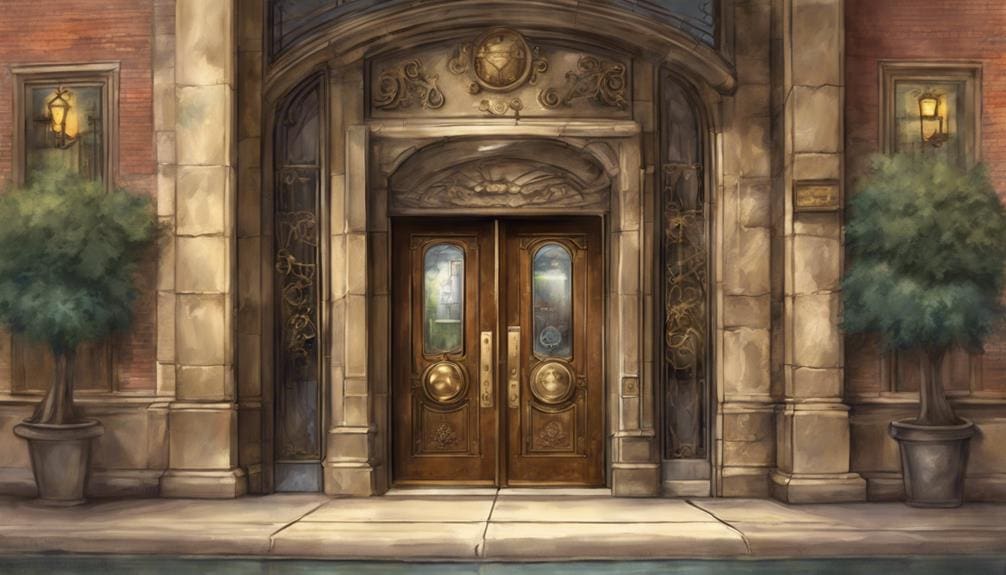
In Texas, commercial property owners must ensure exterior doors are equipped with both a keyed deadbolt and a keyless deadbolt to comply with state security regulations. According to the Texas Property Code, these measures are essential for maintaining a secure environment for tenants and their businesses.
Ensuring that your front door meets these requirements isn’t only a matter of compliance but also demonstrates a commitment to tenant safety, fostering a sense of trust and belonging within your commercial community. Low Rate Locksmith Texas, a licensed locksmith service, can assist in installing and maintaining these necessary security features, ensuring your property stays up to code.
Additionally, the Property Code mandates that a viewing device, such as a peephole with at least 160 degrees of view, be installed on all exterior doors. This feature enhances security by allowing tenants to see who’s outside before opening the door.
For sliding glass doors, a pin lock is required to prevent unauthorized entry. Adhering to these regulations can also prevent potential disputes over a tenant’s security deposit, as non-compliance could lead to lease termination. Remember, using a licensed locksmith like Low Rate Locksmith Texas ensures that all installations meet the stringent licensing requirements, providing peace of mind and enhanced security.
Required Security Devices
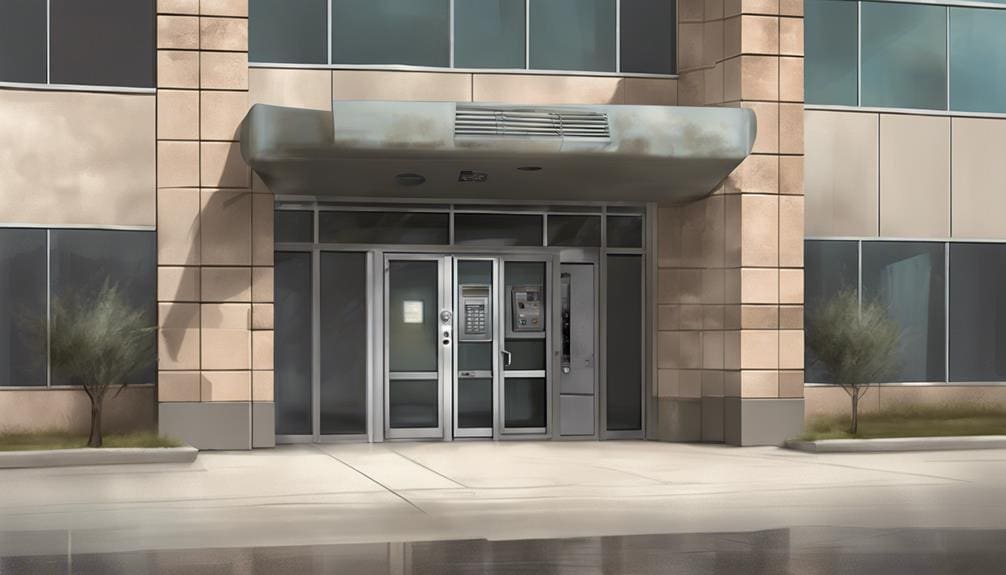
Maintaining compliance with Texas Property Code, commercial property owners must equip all exterior doors with both a keyed deadbolt and a keyless deadbolt. These security devices are vital for preserving safety and meeting state regulations.
Each exterior door, including front entrances, back/side doors, and garage entries, must feature these locks to ensure strong security.
Additionally, a viewing device, commonly referred to as a peephole, with a minimum of 160° of view, is mandated. This allows occupants to see who’s outside before opening the door, thereby enhancing security.
For sliding glass doors, a pin lock is required to meet Texas Property Code regulations. This specific security device guarantees that sliding doors remain secure and resistant to unauthorized entry.
Adhering to these requirements for your commercial property not only guarantees compliance but also fosters a sense of safety and belonging among tenants and visitors.
Failure to install the necessary security devices can lead to serious consequences, including lease termination by tenants. Hence, it’s important to regularly inspect and maintain these security measures to safeguard your property and adhere to legal standards.
Compliance Responsibilities
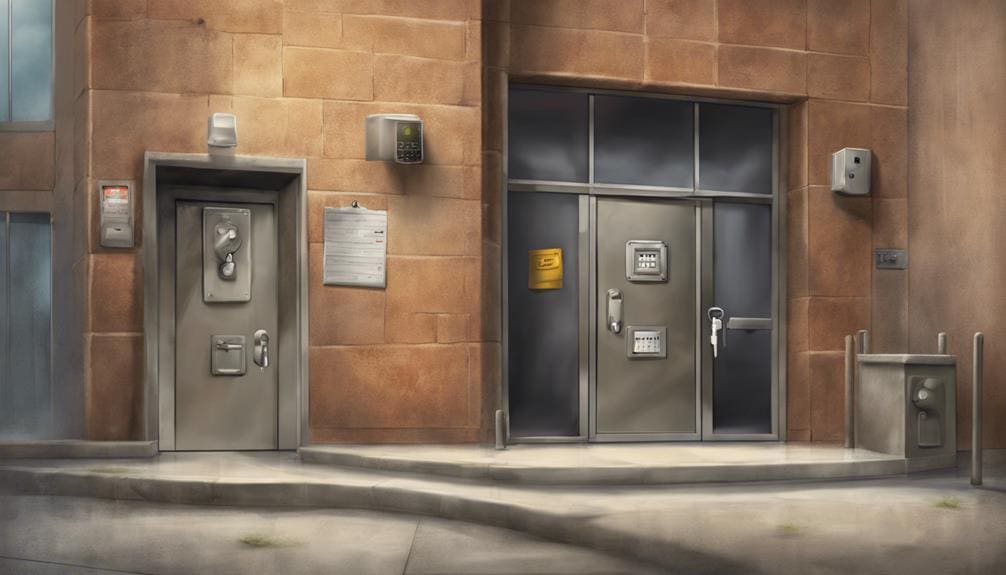
To comply with Texas Property Code, landlords must rigorously verify that all exterior door locks meet the mandated security specifications. This includes validating that each exterior door on the property is equipped with both a Keyed Deadbolt and a Keyless Deadbolt.
Additionally, a Viewing Device (Peephole) with a minimum viewing angle of 160 degrees is required on all exterior doors. For sliding glass doors, a pin lock must be installed to maintain compliance.
As a landlord or property manager, it’s your responsibility to address normal wear and tear on these security devices promptly. Regular inspections should be conducted to confirm that all locks and viewing devices remain functional and meet the required standards. You must also use stronger and longer screws for installations to ensure durability and security.
If tenants report any issues, you should act swiftly. Communicate with them via their last known address if necessary, to verify you’re aware of any required repairs or replacements. Failure to comply with these regulations not only jeopardizes tenant safety but also grants tenants the right to terminate their lease agreements, potentially leading to financial and legal consequences for you.
Tenant Rights and Protections
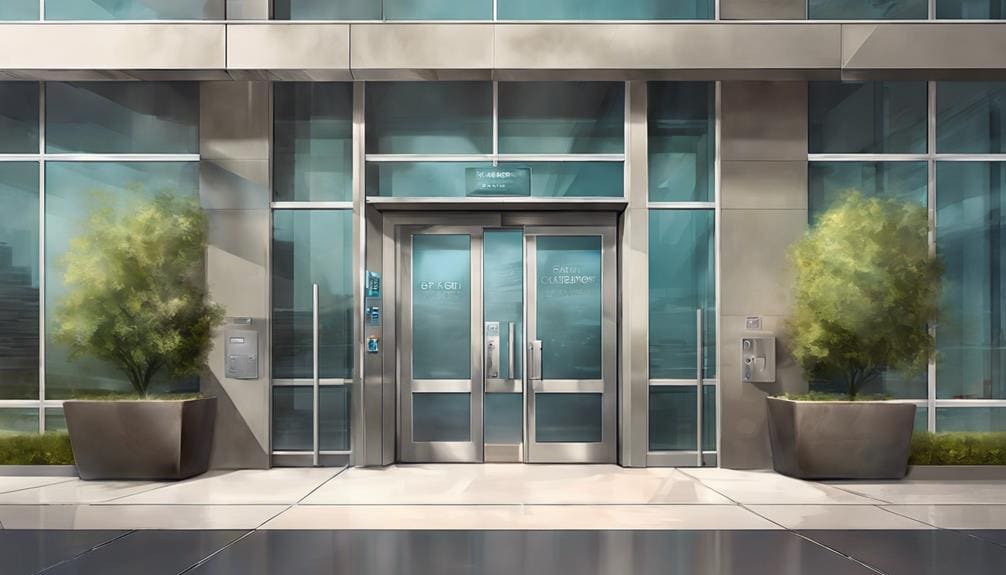
Tenants in Texas commercial properties are entitled to robust security measures, including the installation of both keyed and keyless deadbolts on all exterior doors. The Texas Property Code under Subchapter D mandates that landlords provide these protections to guarantee your safety. Exterior doors, including front entrances, back/side doors, and garage entries, must adhere to these standards.
Additionally, viewing devices with at least a 160° view, such as peepholes, are required on all exterior doors to enhance your security.
If your property lacks these measures, you have the right to demand compliance. You should provide written notice to your landlord, specifying the needed security devices. Sending this notice via certified mail ensures there’s a formal record of your request. Should the landlord fail to comply, you’re legally permitted to terminate your lease without penalty, securing you’re not forced to remain in an unsafe environment.
Sliding glass doors also require pin locks, further securing your commercial space. These protections aren’t just legal formalities; they’re your right as a tenant. Confirm your commercial property meets these standards to safeguard your business and peace of mind.
Legal Consequences
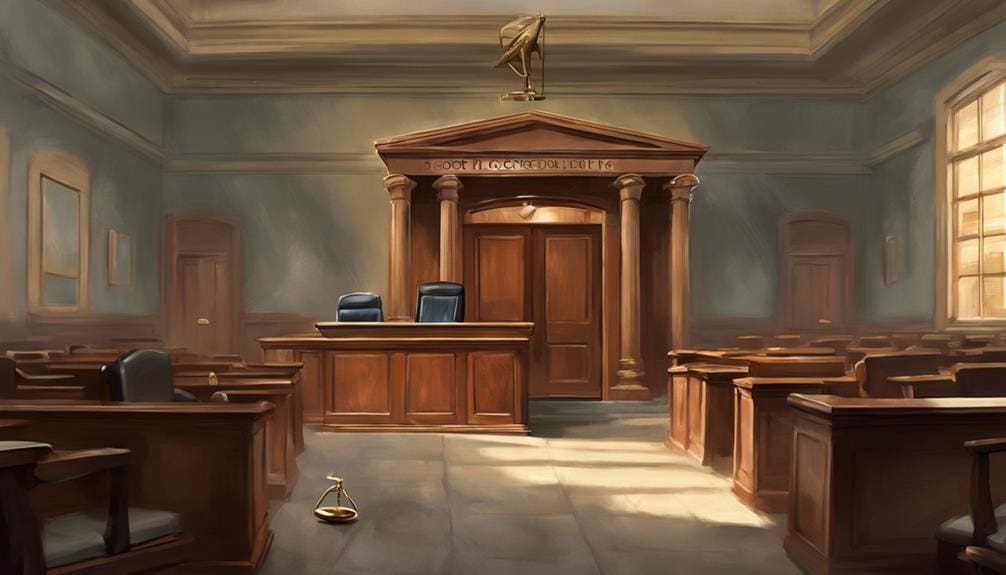
Non-compliance with Texas commercial property door lock regulations can expose landlords to significant legal ramifications. If you neglect to install the required security devices, such as a keyed deadbolt and a keyless deadbolt on exterior doors, you risk facing serious legal consequences. The Texas Property Code mandates these security measures to guarantee tenant safety and property security.
Failure to adhere to these regulations can lead to lease termination by the tenant. Tenants have the right to terminate their lease if the property doesn’t meet the specified security standards. This not only disrupts your rental income but also tarnishes your reputation as a dependable landlord.
Moreover, sliding glass doors must have a pin lock installed to comply with Texas security requirements. Disregarding this regulation could result in legal actions against you.
Additionally, exterior doors must be equipped with a viewing device providing at least 160 degrees of view. Non-compliance with this standard can further worsen your legal troubles.
Frequently Asked Questions
How Do I Lock Out a Commercial Tenant in Texas?
To lock out a commercial tenant in Texas, follow these steps:
Provide the tenant with proper written notice of the nonpayment or lease violation.
Wait for the legally required notice period to pass.
After that, you can change the locks but must provide the tenant with a new key upon request, provided they pay the overdue rent.
Always adhere to the Texas property code to avoid legal consequences.
What Is Section 92.156 of the Texas Property Code?
Section 92.156 of the Texas Property Code requires specific security devices for exterior doors in commercial rental properties.
You must verify your property has a Keyed Deadbolt, a Keyless Deadbolt, a Viewing Device (Peephole), and a pin lock on Sliding Glass Doors.
Not complying could allow your tenant to terminate the lease.
Is a Deadbolt Required in Texas?
Imagine your property is a fortress; it needs a strong gate to keep it secure. In Texas, that ‘gate’ on your commercial property is a keyed deadbolt, mandated by law to guarantee safety.
Additionally, a keyless deadbolt and a viewing device are required. Non-compliance can lead to lease termination.
These measures aren’t just rules—they’re your shield, making your property a safe and welcoming place for everyone.
What Is Section 93.007 of the Texas Property Code?
Section 93.007 of the Texas Property Code outlines the obligatory security features for exterior doors of commercial rental properties.
You need to make sure that each exterior door has both a Keyed Deadbolt and a Keyless Deadbolt for enhanced security. Additionally, a Viewing Device with a 160-degree view is required.
For sliding glass doors, a pin lock must be installed.
Non-compliance allows tenants to terminate their lease under this section.
Conclusion
Think of Texas commercial property door lock regulations as the guardians of your castle. By understanding and adhering to these rules, you safeguard your fortress remains secure, protecting both you and your tenants.
Neglecting these responsibilities is akin to leaving the gates open, inviting potential legal and financial intrusions. Stay vigilant, comply with the guidelines, and you’ll uphold a stronghold of safety and trust in your commercial ventures.

